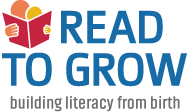Whether rich or poor, residents of the United States or China, illiterate or college graduates, parents who have books in the home increase the level of education their children will attain, according to a 20-year study led by Mariah Evans, University of Nevada, Reno associate professor of sociology and resource economics.
Evans said, “Even a little bit goes a long way,” in terms of the number of books in a home. Having as few as 20 books in the home still has a significant impact on propelling a child to a higher level of education, and the more books you add, the greater the benefit.
Five simple strategies to parenting that enhance bonding and support healthy growth of babies from birth to 3 years old have been developed by Ronald Ferguson, director of the Achievement Gap Initiative (AGI) at Harvard University.
With “Fundamental Five,” which is a set of guidelines for parents and early caregivers, Ferguson seeks to influence parenting behavior and affect academic and social outcomes for children far down the road.
Eliminating persistent inequities that constrain the potential of poor and minority students will take more than just school-based improvements, say Ferguson. Research shows a gap in language, gesturing, and other developmental markers begins to open by age 2, Ferguson says — even though there are virtually no racial or social class differences in the mental abilities of infants before age 1.
Reading to very young children even before they have begun to identify letters can form an important foundation for vocabulary development and language skills later in life. This is especially true for lower-income families where offspring are more likely to fall behind in early language and cognitive achievement…. Therefore, programs that improve the awareness and ability of low-income parents and caregivers to read frequently to infant and toddlers may lead to important literacy gains in the school years.


